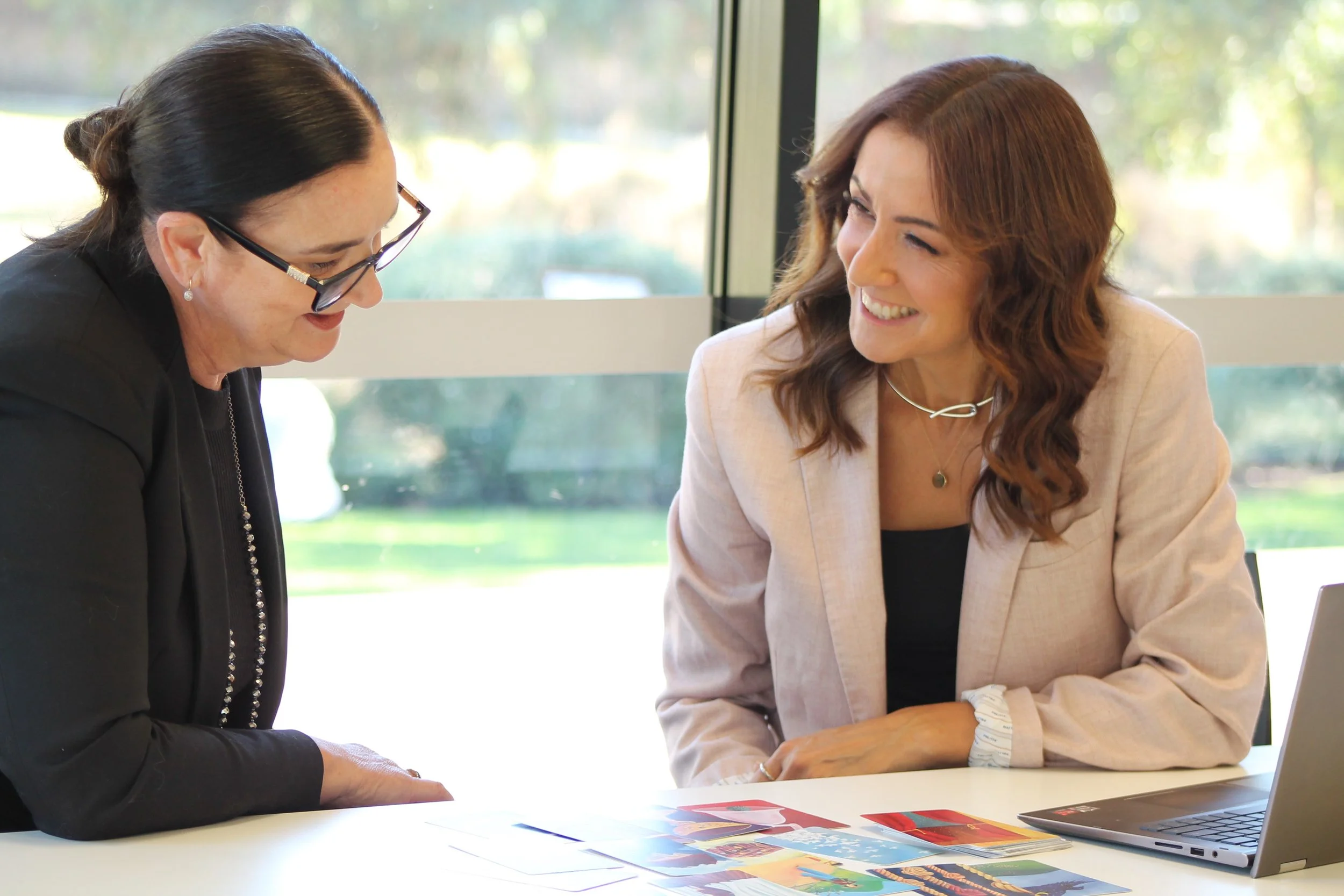PSYCHOEMOTIONAL
STRENGTH PROGRAM
What is the Psychoemotional Strength Program for School Staff?
It is a regular and consistent non-judgmental, collaborative and confidential process where education practitioners are supported to reflect on their practice, relationships, the emotional demands of their work and the impact of these on their psychological wellbeing.
It is dynamic, innovative and personalised professional learning which strengthens the psychoemotional preparedness of school staff, supporting them to regularly refresh and reset for positive long-term growth. It is governed by educators’ priorities and offers a reflective, insightful and skilled lens to strengthen workplace wellbeing, hence strengthening relationships with students and colleagues.
Educators, especially Wellbeing Leaders, Heads of House and Year Level Coordinators are exposed to secondary trauma on a regular basis. Without access to confidential reflective practice sessions, which focus on psychological flexibility, self-awareness and recovery, they are at dire risk of the cumulative effects of rumination, mental health disorders and of leaving the profession.
Sessions occur on school campus or online, 1:1 or small groups.
The Psychoemotional Strength Program for School Staff relates to the AITSL Standards: 4.1, 4.4, 7.1, 7.2, 7.4.
I am an experienced Teacher, Clinical Counsellor and Clinical Supervisor, passionate about offering my skills in this unique way.
Prioritise your professional growth and psychological wellbeing for a sustainable career in education. Reflection is the process that transforms information and knowledge into wisdom and self-awareness!
Reference: Supervision in Education – Healthier Schools For All Barnardo’s Scotland report on the use of Professional or Reflective Supervision in Education. Trauma-informed schools – Paper #2 Nicki Lawrence February 2020
Find out more
Connect with me to find out more about how the Psychoemotional Strength Program can help your staff and school to thrive.
What is the PSP modelled on?
The Psychoemotional Strength Program (PSP) is modelled on ‘Supervision’; a world-renowned supportive practice, regularly and consistently offered to and accessed by therapists.
However, the PSP is specifically designed and consistently offered to and accessed by educators and all school staff. It is personal and professional development and relates to the AITSL standards.
Why is the PSP necessary?
While it seems like an obvious and crucial response to supporting and improving the wellbeing of staff in education, this is not a regular occurrence in in Australia, despite the acknowledgement of the cumulative impact of vicarious trauma and the demise in mental fitness of young people and their families and the direct impact of this on teachers’ mental fitness.
Who is the facilitator and what are their credentials?
The facilitator is an experienced teacher, PACFA registered clinical counsellor and clinical supervisor; a person who intimately understands schools and the emotional labour school staff carry on a daily basis.
The facilitator is a person who has the skills to support and assist her clients to shift cognitive and emotional overload, with the aim of strengthening mental fitness.
Is PSP facilitated one on one or in small groups?
It can be either. The strong preference is one on one. There are many group wellbeing programs currently in practice in schools.
The PSP is unique in that it provides school staff with a personal opportunity to partake in sessions that focus on them! Strengthening their personal resilience and sustainability in the profession, guided by their own personal and current psychological priorities, is the promise.
How often can staff participate in PSP Sessions?
Developing a trusting relationship with the same facilitator, time and time again, is a critical component of the success of the PSP. Staff are encouraged to tap into this one-on-one support, once a month, for approximately 45 minutes. Remember, the focus is on prevention of vicarious trauma and psychological overload.
Who pays for the PSP?
Refresh Reset aims to have this time incorporated into a staff’s load. It is that important!
What the PSP is not!
The PSP is not counselling.
What did some teachers say about the experience provided by
Barnardo’s ‘Supervision within Education’?
Book Your Appointment
Start your transformation today. Free new client inquiry call!

